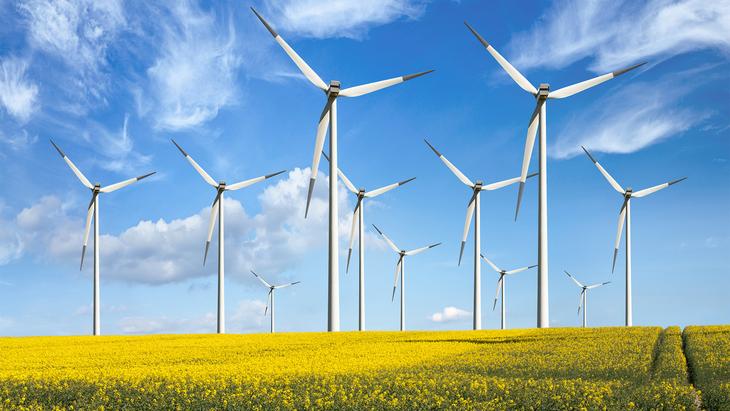Europe’s wind power industry faces a new challenge: while the EU wants to build up its renewable energy capacity and break free from Russian fossil fuels, problems in the industry’s supply chain could hamper that.
The outbreak of war in Ukraine and the ongoing energy crisis have forced Europe to reassess its reliance on fossil fuels, particularly from Russia, according to Euractiv.com.
While increasing the EU’s renewable energy capacity seems an obvious solution, high prices and uncertainty in the supply chain are a growing concern for the wind industry, which often puts in bids for projects several years before development.
Renewables, particularly wind power, can play a crucial role in providing energy security in Europe, Sven Utermöhlen, the CEO of offshore wind at RWE renewables, told Euractiv.
“The challenge is that, at least in the short to medium term, the war has led to disruptions in the supply chain and those increased raw material prices. That obviously makes the faster delivery of even more renewables capacity an even greater challenge,” he said.
Permitting and supply chain issues must be tackled to boost wind sector, says the industry. Wind energy will play a key role in helping Europe break away from Russian fossil fuels and increase its energy independence, but slow permitting and strains on the supply chain need to be tackled if Europe wants a fast rollout of wind power, according to Sven Utermöhlen.
Over the last few weeks, the price of certain materials used in wind turbines, like steel, aluminium and nickel has shot up.
“Prices are significantly higher at the moment – the raw material prices in particular and the price of certain components, such as cast iron parts – and price predictions have become significantly more uncertain,” Utermöhlen said.
“At this time, it is very difficult for companies in the supply chain to predict where prices will go, which means that, if they are asked to make offers for delivery in four or five years from now, it’s very difficult to predict their costs,” he added.
Russia and Ukraine are major steel producers, which make up the bulk of a wind turbine, but since the war, imports of finished steel into the EU have dropped by a fifth.
Alongside this, the price of hot-rolled coil steel has increased by 40%. Steelmakers in Spain, such as ArcelorMittal and stainless steel producer Acerinox, have reduced their production, while Germany’s Lech-Stahlwerke has stopped output completely.
Aluminium is less relevant for the wind industry but is still used for several components, including rotors and cabling. Again, there are visible price increases in the supply chain.
Russia is also the leading global supplier of nickel, another essential component of wind turbines.
“Our competitive position depends on the affordable raw material prices and a stable supply chain. Currently, like many other industries, we’re confronted with high steel and other raw material costs,” said Jochen Eickholt, the CEO of Siemens Gamesa Renewable Energy, at the opening of WindEurope’s conference last week.
